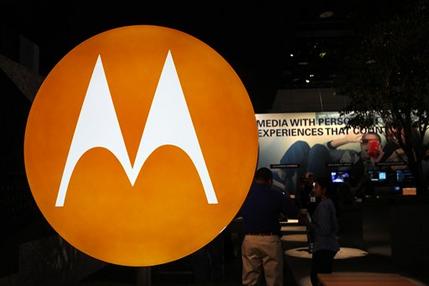
Control Panel cPanel/Helm
Unlimited POP E-Mail ID
Unlimited Sub Domain Buy Now
Breakup of gadget pioneer Motorola is complete
With the breakup comes a shrunken bureaucracy, which both companies hope will help them make faster decisions and compete better in the marketplace. "Motorola (Mobility) can be focused on handsets and nothing but handsets in a world where so much as changed over the last five years is good thing," said Gartner analyst Michael Gartenberg. Likewise, Solutions doesn't have to worry about the once-flailing cell phone business. "Hopefully this will lead to more innovative designs, better time to markets and a better ability to not just capitalize on trends but also create trends," he said. Dan Maloney, Mobility's president, also said a smaller company that excels at just a few things might spur employees to be more creative. "Inside Motorola, it was difficult at times for employees to understand how what they were doing was going to directly have an impact on financial performance because it was such a large, multi-faceted entity," he said. In a statement, Motorola Solutions spokeswoman Tama McWhinney looked forward to similar benefits. "The separation gives us increased strategic flexibility and the opportunity to focus on this part of the portfolio with clarity, purpose and management focus," McWhinney said. As part of the breakup, Motorola is selling its cellular network equipment division to Nokia Siemens Networks, a Finnish-German joint venture. Regulators in China are still reviewing the $1.2 billion sale, which is expected to close in the next three months. Wireless carriers have consolidated into larger companies and prefer to deal with only a couple of equipment vendors each, leaving few opportunities for a small vendor like Motorola that wasn't dedicated to making network gear. The point of one company making both cell phones and the equipment that connects their calls has diminished as the technology has become standard. Meanwhile, the company had to contend with companies such as Apple Inc. and BlackBerry maker Research In Motion Ltd., which focus on mobile devices. Motorola's cell phone division once enjoyed strong sales thanks to the Razr, a 2004 feature phone that became a best-seller. As recently as 2007, cell phones accounted for two-thirds of the company's revenue. But without a blockbuster smart phone, the division fell into a slump that lasted until the most recent quarter. In 2008, under pressure from activist investor Carl Icahn, Motorola set the breakup in motion. It hired Jha, then the chief operating officer of mobile chipmaker Qualcomm Inc., to strengthen the declining phone business. A turnaround is now under way, with a focus on smart phones such as the Droid that run Google Inc.'s Android software. In 2011, Mobility expects to claim more market share in Latin America and China while dipping its toes into the U.S. tablet market, a category Jha says is one of the company's growth areas. And while Jha said he wants to build a big company, that isn't Motorola's goal for the current year. The company's market cap as of Tuesday was $9.69 billion market, a fraction of Apple's $302.48 billion market value. "I'm not a believer in scale for its own sake," Jha said. "I am much more focused on being able to deliver world-class products. In 1997 Apple didn't have scale. Only a few short years ago RIM didn't have sale. Nokia still has scale. I'm not sure scale alone defines your success or your future." Motorola shareholders of record on Dec. 21 received one share of Mobility for every eight shares of Motorola Inc. they already held, and and one share of Solutions for every seven shares of Motorola. People who already owned shares in Motorola had been trading stock in the newly formed companies on a "when issued" basis for almost a month. Those trades became official Tuesday. Shares of Motorola Mobility Holdings Inc. climbed $2.88, or 9.5 percent, to close at $33.12 Tuesday. Motorola Solutions Inc.'s stock closed unchanged at $39.77. The shares were trading on the New York Stock Exchange with the ticker symbols MMI and MSI, respectively. Solutions will continue to be based in Schaumburg, Ill., while Mobility will take up a temporary home in nearby Libertyville, Ill. Motorola officials have said that it may later move its headquarters team to San Diego, the San Francisco area or Austin, Texas. NEW YORK (AP) -- Motorola, the 82-year-old consumer electronics pioneer responsible for early televisions, cell phones and even the first broadcast from the moon, split into two companies Tuesday in a reflection of changing markets.As separate companies - Mobility, targeting consumers, and Solutions, for professionals - the two will have simpler stories to tell investors and a nimbler approach to developing cutting-edge products such as tablet computers.Sanjay Jha, CEO of the consumer-focused Motorola Mobility Holdings Inc., said in an interview that the new company will benefit from a narrower focus, all the way up to the top management and the board of directors."I think you'll see a board that is much more focused on understanding technology as opposed to managing a portfolio of products," Jha said.For decades, Motorola Inc.'s products told the story of the march of electronics into the hands of consumers: car radios in the 1930s,
TVs in the 1940s and cell phones starting the 1980s.The company also expanded into police radios and barcode scanners aimed at government agencies and large businesses. These divisions complicated the picture Motorola painted for investors; now, they make up the second company, Motorola Solutions Inc.
NEW YORK (AP) -- Motorola, the 82-year-old consumer electronics pioneer responsible for early televisions, cell phones and even the first broadcast from the moon, split into two companies Tuesday in a reflection of changing markets.As separate companies - Mobility, targeting consumers, and Solutions, for professionals - the two will have simpler stories to tell investors and a nimbler approach to developing cutting-edge products such as tablet computers.Sanjay Jha, CEO of the consumer-focused Motorola Mobility Holdings Inc., said in an interview that the new company will benefit from a narrower focus, all the way up to the top management and the board of directors."I think you'll see a board that is much more focused on understanding technology as opposed to managing a portfolio of products," Jha said.For decades, Motorola Inc.'s products told the story of the march of electronics into the hands of consumers: car radios in the 1930s,
TVs in the 1940s and cell phones starting the 1980s.The company also expanded into police radios and barcode scanners aimed at government agencies and large businesses. These divisions complicated the picture Motorola painted for investors; now, they make up the second company, Motorola Solutions Inc.
Favourite Web Browser
Our Technology


Copyright © 2005-2012 MEHRA MEDIA. All Rights Reserved.
